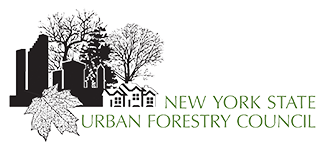
Joel Meyerowitz
A recent New York Times article by James Barron features an interview with Natural Areas Conservancy Executive Director Sarah Charlop-Powers and Senior Ecologist Helen Forgione about the story behind the new Forest Management Framework for New York City’s urban forest. Prospect Park Alliance President and Administrator Sue Donoghue is also featured. Climate change, invasive plants, forests at tipping points–and the mitigations for all these dilemmas that the Framework will power–are discussed.
About the Forest Management Framework for New York City
A joint project of the Natural Areas Conservancy and NYC Parks, the Forest Management Framework for New York City is a strategic and comprehensive plan to bolster and protect New York City’s vital urban forests. It is the first citywide vision for this critical piece of infrastructure. The plan is intended to guide restoration, management, and community engagement for 7,300 acres of New York City’s forested parkland. The 25- year plan includes the process, costs, steps, recommendations, best practices, and goals for forest management in NYC. It marks the culmination of six years of research, data collection, and analysis by NAC scientists.
The full report is here and a one page summary of goals is here.
A key part of the project includes providing data-informed guidance in forest management to other NYC Park conservancies in 2018 and 2019. In spring 2018, the Natural Areas Conservancy will work with the Forest Park Trust in Queens and the Prospect Park Alliance in Brooklyn through the Conservancy Engagement Program.
This project was generously funded by the Doris Duke Charitable Foundation and The New York Community Trust.
Climate Adapted Species for New York City Forests
In conjunction with the Forest Management Framework, the Natural Areas Conservancy has developed recommendations for climate-adapted tree species to plant in New York City forests. We have identified native species that are most resilient under warmer, dryer conditions. NYC Parks has adopted our recommendations for their planting projects, and we’re making them available to other conservancies. More information about the project is here.
This project was funded by a Wildlife Conservation Society Climate Adaptation Fund grant. Support for this Fund is provided by the Doris Duke Charitable Foundation




